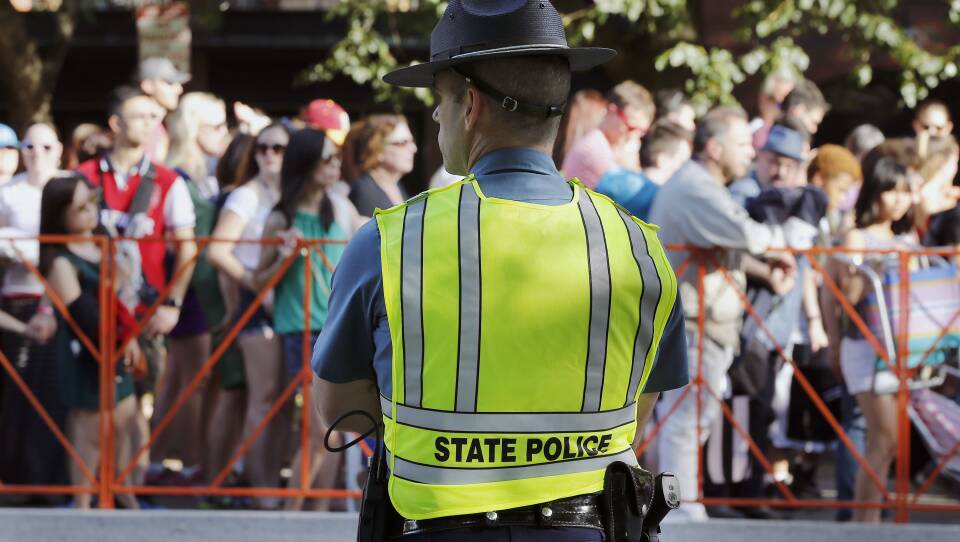The Massachusetts House of Representatives and Senate have reached a compromise on a police reform bill, which establishes new oversight for police in the state and puts restrictions on how they can use force. GBH Morning Edition host Joe Mathieu spoke with GBH News Statehouse reporter Mike Deehan to get details about what's in the bill and whether Governor Charlie Baker will sign it into law. The transcript below has been edited for clarity.
Joe Mathieu: We've been talking about this for a long time. This has been sitting on the shelf for months, having been a major story during the spring and summer months; five months now to come up with a compromise. What are the key points? What made it through the end?
Watch: Deehan on the key points of the police reform bill:
Mathieu: Qualified immunity was a big point of contention between the House and Senate, Mike. It's something that a lot of people have learned a lot about over the last year. Where did the compromise land there?
Deehan: Well, the House did win on that one. The major contention when the House and Senate were debating their various proposals was to do what the Senate wanted, which was really restrict qualified immunity — that's the protections against civil lawsuits that police have. The Senate wanted to really restrict those, roll them back. The House decided to tie it to the decertification, so that immunity stays unless a police officer is decertified by this new board. So that's a higher standard for that kind of punishment. That's what got a lot of advocates excited, a lot of police union activity. They were lobbying hard throughout those five months during these negotiations. So that is kind of where QI lands. There is, I guess, a silver lining if you're the Senate in that the bill will start a commission to review that qualified immunity debate and they'll file recommendations with the legislature next September. So I guess we'll just have to see if there's still an appetite to make further reforms to that particular piece of the pie.
Mathieu: So are you indicating that negotiations were ongoing this whole time while we were talking about it, Mike, or did something kick this loose again more recently?
Deehan: They're so tight-lipped about these types of things; it's very difficult to say what was going on over these five months and if something was in fits and starts. But it's well known that police unions, civil rights activists and other groups were very, very active in pitching to their lawmakers, not only the lawmakers that were on this six-member conference committee between the House and Senate that was debating the bill, but also the rank and file members that are going to have to approve this package when it comes through. It should be noted that this was one of the closest House votes in years. It was something like 99 to 60, which seems like a pretty solid majority, but it never gets that close. Meaning that if the House were to soften some of their positions, they'd probably lose votes and they probably wouldn't have that veto-proof majority should Governor Baker decide to veto this. So there was not a lot of leeway for the House to give up anything, and I think that's why we saw a lot of the language in this compromise bill reflect what the House wanted instead of what the Senate did because they just knew that votes would drop off and that could jeopardize the whole thing if they couldn't get it through the House of Representatives.
Mathieu: So how about the governor, Mike Deehan? Is he expected to sign this or are you waiting to hear from his office?
Deehan: It has an awful lot of what Governor Baker asked for, not only in that POST board — that was a key part of his initial police reform bill that he filed months and months ago. It has a lot of the reforms to the state police that Baker had wanted. That's something that whenever this comes up, he reminds the legislature and lawmakers that he needs to get those state police reforms in. So there's a lot for him. There's not a ton that he would be that resistant about. Maybe the membership of the board isn't quite to his liking [or] maybe too many civilians than he would like. However, the main pieces are in alignment with what Baker wanted, it's in alignment with what the Black and Latino Caucus wanted, and it seems like Baker shouldn't have too much of a problem signing this one.





